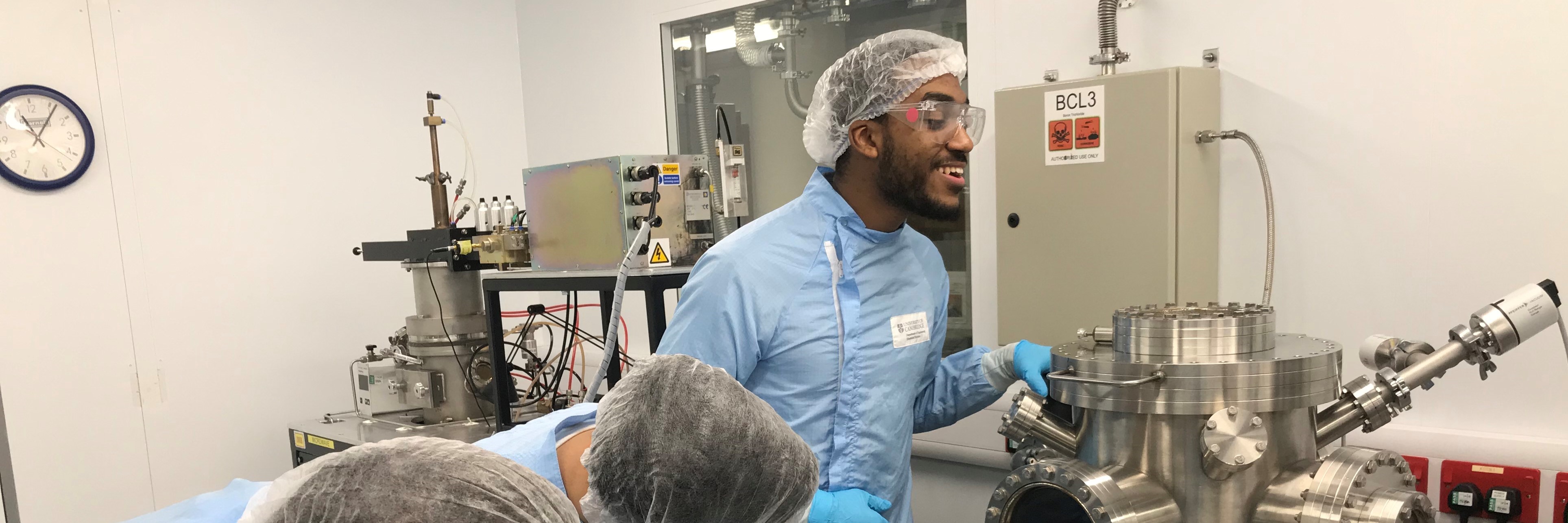In Oct 2024 we will be launching a new Applied Nanoscience module, which will comprise inter-linked lectures and practicals on core nanoscience techniques, together with computational and data analysis methods linked to those techniques (for example curve fitting). We believe this integrated approach will be far more effective than the traditional one which focuses primarily on theoretical grounding for the techniques without proportional attention to application of the techniques. Assessment of this module will also be more application based compared with traditional written exams.
This module builds on the success of our practical training during our MRes+PhD where students completed 30 practicals over an intense 7-week period at the very start of their course. These practicals, each 3 hours long, were held in different departments or research groups all across the University in small groups of around 3 students.
The practicals conducted in 2022-23 included:
- AFM
- Optical microscopy
- Confocal microscopy
- Superresolution microscopy
- Intro to Python programming
- Intro to HPC
- Intro to COMSOL
- Microfluidics
- e-beam lithography
- Nanoscribe two-photon lithography
- Nanocrystal Batch Synthesis
- Luminescent QD device fabrication & measurement
- Time-Correlated Single Photon Counting
- 2D Material Growth and Characterisation
- Raman spectroscopy
- R2R Nanoimprint
- Intro to Chem Eng
- Nanoparticle Flow Synthesis and Characterisation
- Electrochemistry
- DLS and iScat microscopy
- Biological sample prep and characterisation
- SEM and EDS
- He-ion microscopy + FIB
- High Resolution TEM
- Multidimensional Data Analysis in Electron Microscopy
- x-ray diffraction
- Cathodoluminescence
- CAD, 3D printing and making diagrams

